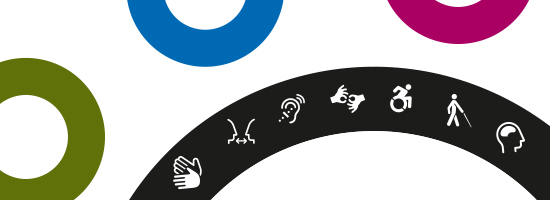The Government of Canada’s Digital Ambition: 2023–24 Year in Review
On this page:
- Excellence in technology and operations
- Data-enabled digital services and programs
- Action-ready digital strategy and policy
- Structural evolutions in funding, talent and culture
In the 2023–24 fiscal year, the Government of Canada (GC) continued to advance its Digital Ambition, an enterprise-wide plan for all things digital. This “year in review” report reflects on the GC’s digital achievements and challenges during 2023–24.
GC institutions have made notable progress in aligning their digital strategies and initiatives with the Digital Ambition, despite the ongoing challenges posed by increased security threats and the GC’s aging information technology (IT) infrastructure. This alignment has strengthened a common framework that enhances the prioritization of digital initiatives and the delivery of government services.
This report highlights the success stories related to each theme of the Digital Ambition from across the GC over the past year.
The path to a fully digital government is an ongoing journey, and we must continue to build on these accomplishments, ensuring progress in all areas. Over the next year, it will be more crucial than ever to ensure strong oversight and sustainable funding for major IT projects to drive toward a digital environment that is more effective, user-centred and transparent while meeting security and privacy needs.
Success stories
Excellence in technology and operations

Enterprise Cyber Security Strategy
The GC’s Enterprise Cyber Security Strategy keeps Canadians safe in the digital age.
Learn more
The GC’s Enterprise Cyber Security Strategy is the first of its kind and is a testament to our commitment to keeping Canadians safe in the digital age. As a whole-of-government strategy, it will reduce redundancies while addressing gaps in government cyber resilience and promoting year-round testing of federal institutions’ cyber security posture.

Digital Privacy Playbook
The Digital Privacy Playbook ensures that privacy considerations are incorporated into all stages of a digital initiative.
Learn more
By centralizing guides, best practices and templates, the Digital Privacy Playbook makes it easy for federal public servants to ensure that privacy considerations are incorporated into all stages of a digital initiative. During the 2023–24 fiscal year, the Digital Privacy Playbook web page received over 11,000 page views and 4,500 unique visitors. The top three visitor locations were:
- Ontario (5,131 page views)
- Quebec (820 page views)
- outside Canada (767 page views)
Canadians should know that the GC considers privacy and security at the foundation of all its digital initiatives. If every GC initiative has a strong foundation in privacy, the better Canadians can trust using it.

Transport Canada’s Transportation Security Services platform
The Transportation Security Services (TSS) platform improves the transportation security clearance process.
Learn more
The Transportation Security Services (TSS) platform is a key component of the Transportation Security Clearance Program. TSS simplifies the vetting of non-government employees for travel by providing a one-stop shop for everyone involved in processing transportation security clearances, including airports, marine ports, applicants, and security institutions such as the Royal Canadian Mounted Police and the Canadian Security Intelligence Service. Speeding up the process through which the public is vetted helps services become quicker and more efficient.

Application Hosting Strategy
The Application Hosting Strategy provides direction for federal government institutions on optimal application hosting solutions.
Learn more
As part of the shift toward centralization of services and the move toward enterprise and common applications, the new Application Hosting Strategy provides direction for federal government institutions on how to provide optimal application hosting solutions that:
- are cost-effective
- bring high business value to support the delivery of efficient and user-friendly digital services to Canadians
Data-enabled digital services and programs

AgPal Chat
The AgPal tool gives specific advice on over 400 GC programs and services to Canadians in the agricultural sector.
Learn more
AgPal is an important resource for those working in Canada’s agricultural and agri-food sector, providing information on over 400 federal, provincial and territorial government programs and services. AgPal Chat is a generative AI chatbot that provides helpful, conversational advice to Canadians on government programs and services in the agricultural sector. It is available on the AgPal website as a new, complementary way to connect users with relevant Canadian agricultural information.

GCpedia and GCXchange
The upgrade of GCpedia to GCXchange enhances collaboration both within the GC and with the public.
Learn more
The upgrade of GCpedia, the GC’s wiki and repository for key reference materials, enhances collaboration both within the GC and with the public. Communication is important because it increases both trust and transparency. By using Protected B communities on GCXchange, government employees will find it easier to collaborate and share information securely. Additionally, migrating and improving the internal Career Marketplace to GCXchange will facilitate better talent mobility within the government to help ensure the strongest workforce possible.

Data Implementation Plan (for Data Strategy for the Federal Public Service)
The GC’s Data Implementation Plan ensures government-wide integration of data initiatives.
Learn more
To better use the government’s growing volume of data to address complex issues and improve services, the development of the GC’s Data Implementation Plan ensures the cross-governmental integration of data initiatives and keeps government accountable. Data is a part of decision-making, and the Data Implementation Plan helps keep the government accountable because the data will show which government services are thriving and which are not, including applications, departments and agencies.

Open Government Portal
Improvements to the Open Government Portal make it easier for people to look up contract information.
Learn more
In 2023–24, phased improvements to the Open Government Portal, including a new system enabling the proper grouping of contracts with relevant amendments on the portal, were implemented to make it easier for people to look up contract information. This improvement eliminated instances of perceived duplicative contracts.
In addition, there is an ongoing push for the increased usability and transparency of contracting data. Federal government institutions were provided with a detailed analysis of their published contracting data and guidance on how to improve data accuracy, which resulted in the modification and correction of over 22,000 contracting records.
The launch of new data visualization dashboards also makes it easier to read and interpret data, which supports greater transparency and accountability to strengthen the trust between the government and the public.
Action-ready digital strategy and policy

Trust and Transparency Strategy
The GC’s Trust and Transparency Strategy sets out a whole-of-government vision to support federal government institutions in reinforcing public trust.
Learn more
Published in May 2024, the GC’s Trust and Transparency Strategy sets out a whole-of-government vision, including core principles, desired outcomes, strategic objectives and commitments to support federal government institutions in reinforcing public trust. To meet the objectives of the strategy, new guidance to federal government institutions was also released on the consideration of time thresholds when applying exemptions to the Access to Information Act.

Guidance on generative artificial intelligence AI
Updates to the Guide on the Use of Generative AI further support federal institutions in the safe and effective adoption of AI.
Learn more
To support federal institutions in the effective, secure and responsible use of generative artificial intelligence (AI) tools, the evergreen Guide on the Use of Generative Artificial Intelligence was published in September 2023. Updates to the guide in February 2024 incorporated feedback from targeted stakeholder engagement and further outlined the role of federal institutions in supporting the exploration of AI in a way that ensures that risks are managed effectively. To complement the guide and support public servants, the Canada School of Public Service, Shared Services Canada and the Treasury Board of Canada Secretariat have partnered to offer a new course, “Using Generative AI in the Government of Canada.

New Enterprise Performance Approach
The Office of the Chief Information Officer of Canada’s new performance approach improves responsiveness to service issues.
Learn more
In response to service challenges and declining public trust in government services, the Office of the Chief Information Officer of Canada launched a new performance approach to improve responsiveness to service issues and drive digital transformation. This approach aims to create a holistic view of service delivery and includes a dashboard to track the following:
- key operational and performance metrics
- an annual capacity self-assessment
- quarterly meetings with other federal government institutions
The dashboard showcases 25 to 30 high-impact, high-risk services chosen based on volume, significance, impact on vulnerable populations, investments and service delivery changes. This risk-based approach fosters better oversight, decision-making and communication between institutions and the Treasury Board of Canada Secretariat to identify gaps, find solutions and inform investment decisions.
Action is being taken to use tools such as the Enterprise Health Dashboard and the Capacity Self-Assessment to measure and reduce the administrative burden for people accessing services. We are enabling teams that provide services to provide their services better and faster.

Service and digital policy reset
The Office of the Chief Information Officer of Canada improved digital policy implementation by reducing administrative burden on departments.
Learn more
To reduce the administrative burden on federal institutions, the Office of the Chief Information Officer of Canada conducted a review of 14 policy instruments related to the Policy on Service and Digital to assess whether they were outdated and justified within the current policy suite. With consensus from stakeholders, it was determined that four duplicative or obsolete instruments (with nine requirements) would be rescinded by April 2024.
These consultations signalled readiness to revisit policy instruments to ensure ongoing relevance. The consultations have also mobilized people to address gaps and find ways to better support implementation through other policy options, leading to further administrative burden reduction down the road.

The Privy Council Office’s update to the Policy on the Security of Cabinet Confidences
An update to the Policy on the Security of Cabinet Confidences makes handling Cabinet materials more efficient.
Learn more
Effective April 1, 2024, the Privy Council Office updated the Policy on the Security of Cabinet Confidences, which, among other things, specified that a Cabinet confidence (such as a memorandum to Cabinet) was automatically classified as Secret. Because of this classification, all Cabinet material other than Treasury Board submissions had to be handled on isolated Secret systems.
The new policy states that material should be categorized according to its content, thereby enabling memoranda on Cabinet confidences to be drafted, handled and submitted on the Protected B network. While still new, the update is expected to make a huge difference in handling Cabinet material more efficiently, ensuring that the right material gets the right level of security.
Structural evolution in funding, talent and culture

Government of Canada Workplace Accessibility Passport
The GC Workplace Accessibility Passport makes it faster for employees to get the tools and equipment needed in their day-to-day work.
Learn more
Supporting recruitment and development of persons with disabilities, the GC Workplace Accessibility Passport supports conversations between GC employees and managers about optimal workplace conditions and speeds up the procurement of adaptive tools and equipment.

Shared Services Canada’s Architect Professional Certification Program receives Canadian accreditation
The Architect Professional Certification Program is the first program to receive accreditation from the Canadian Information Processing Society.
Learn more
In December 2023, Shared Services Canada’s Architect Professional Certification Program (APCP) received accreditation from the Canadian Information Processing Society, Canada’s association of IT professionals. The APCP is a multi-level development program focused on equipping GC employees with the necessary skills and knowledge they need to be successful IT architects. It is the first GC career development program to receive this accreditation. These architects play a significant role in creating roadmaps and in contributing to solutions that ensure technology investments align with GC standards and goals.

GC Digital Talent Platform
The GC Digital Talent Platform directly connects qualified candidates with digital opportunities across government, eliminating paperwork and traditional hiring methods
Learn more
The GC Digital Talent Platform provides scalable solutions for the GC Digital Community’s recruitment team in terms of posting jobs, tracking candidates, responding to requests for talent and pairing pre-qualified talent with managers. The GC Digital Talent Platform has received over 14,000 applications since its launch in spring 2023. The platform also runs a talent management program, which has served over 1,200 aspiring and digital executives, with approximately 30% of participants taking a new step on their career path while participating in the program.